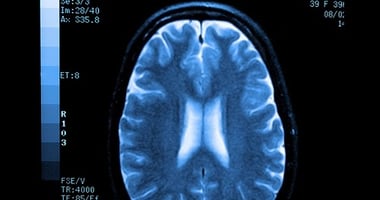Physical comorbidities and poor treatment adherence appear to be associated with both a failure to...
Older Adults With Mild Depression May Benefit From Collaborative Care
 |
Simon Gilbody, Ph.D., of the University of York in the United Kingdom and colleagues randomly assigned 705 adults aged 65 years or older with subthreshold depression (according to DSM-IV) to receive either usual care from their primary care physician or a collaborative care intervention in addition to their usual primary care.
Patients receiving collaborative care were paired with a case manager, who led on average six, 30-minute sessions over seven to eight weeks addressing the behavioral deficits of depression such as avoidance of social interaction and the absence of rewarding activities; two sessions were delivered in person and four were delivered by telephone. Patients in the usual care group received primary care management of subthreshold depressive symptoms only. Patients were asked to complete the nine-item Patient Health Questionnaire (PHQ-9; score range, 0-27) at the start of the trial and again at four- and 12-month follow-ups.
Of the 705 patients who started the trial, 519 remained at the 12-month follow-up (representing a loss to follow-up of 31.7% in the collaborative care group and 21.3% in the usual care group). The PHQ-9 score was 7.8 in both groups at baseline and declined to 5.4 in the collaborative care group and 6.7 in the usual care group at four months (mean difference, −1.31)—a difference that remained at 12-month follow-up.
Additional analysis revealed that while the progression to threshold-level depression (defined in this trial as a PHQ-9 score ≥10) was not different between the two groups at four months (17.2% versus 23.5%), it was significantly less frequent in the collaborative care group compared with usual care at 12 months (15.7% versus 27.8%). Patients in the collaborative care intervention also demonstrated improvements in anxiety, functional status, and more compared with those in the usual care group.
“The need to carefully weigh the benefits of treating individuals who have symptoms but fall short of meeting criteria for major depression is not unique to subthreshold depression but is applicable to prediabetes, mild obesity, statins for primary prevention, and numerous other health care decisions in individuals with mild disease,” Kurt Kroenke, M.D., of the Indiana University School of Medicine wrote in a related editorial. Before expanding treatment beyond major depression to the larger number of patients with subthreshold depression, further research to identify those most likely to benefit is warranted. ... Patients with persistent symptoms, functional impairment, and a desire for treatment may particularly benefit.”
For related information, see the Psychiatric News article “Self-Reported Health Status May Predict Response to Depression Treatment.”
(Image: iStock/shironosov)





